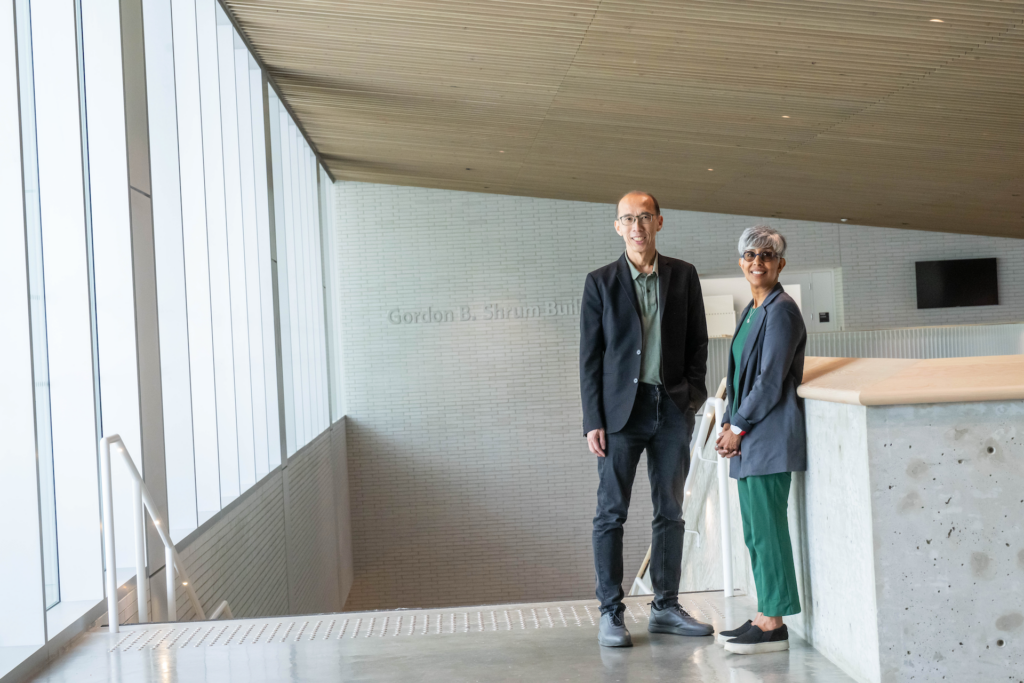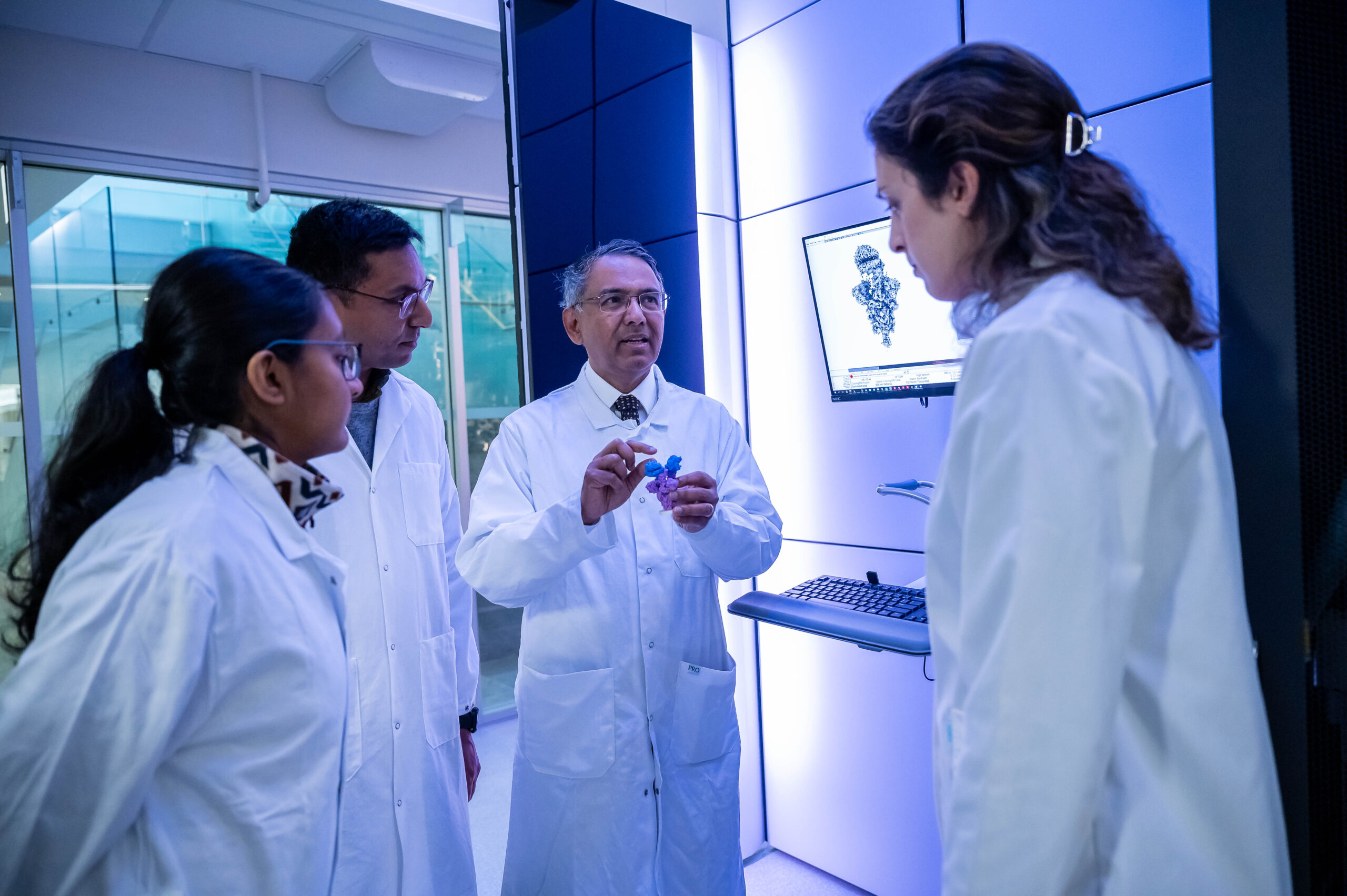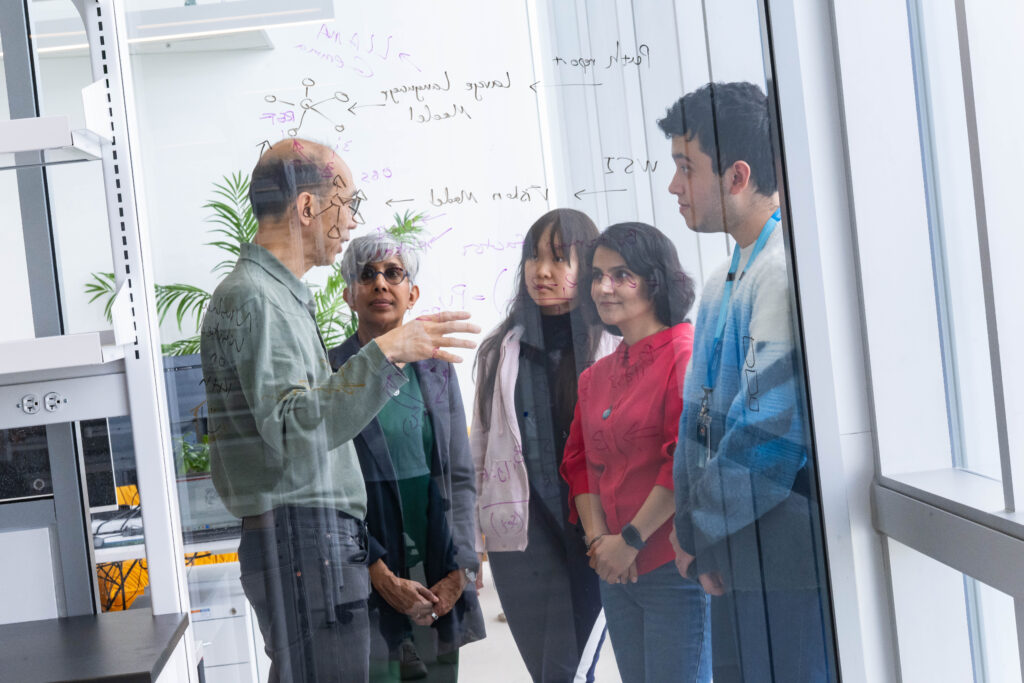Time is everything in health care. Imagine a loved one with high-risk breast cancer being prioritized for treatment in days, not months. A doctor who is able to spend more time with patients and less on paperwork. A breakthrough treatment developed and approved in months, not years, to outpace fast-moving viruses and drug-resistant cancers.
In all these scenarios, time isn't just valuable-it saves lives. And now, they're poised to become a reality in healthcare settings across B.C. and Canada thanks to the artificial intelligence tools being developed and deployed by UBC's new AI and Health Network .
"These are no longer distant possibilities, we're building them today with AI models that are ready to serve the health needs of Canadians," said network co-leader Dr. Raymond Ng, professor of computer science at UBC. "Whether it's earlier disease diagnosis, improved access to care or accelerating drug development, this network is unlocking AI's potential to create efficiencies in health systems, support providers and deliver better care for patients."

Launched today with the support of a $22.5-million gift from the Gordon B. Shrum Charitable Fund, the UBC AI and Health Network brings together researchers, clinicians and health system partners to apply Canadian-made AI solutions to the challenges facing patients and health systems.
Led by Dr. Ng and Dr. Anita Palepu, professor and head of UBC's department of medicine, the Network unifies UBC's expertise across faculties and disciplines, while building on the university's deep relationships with health system partners like the B.C. Ministry of Health, Provincial Health Services Authority and B.C. health authorities.
The interdisciplinary, collaborative approach provides a foundation for researchers to safely and securely leverage clinical data for the development of AI models, while protecting patient privacy. Researchers and clinicians will then work together to apply the latest AI innovations to real-world patient and health system needs.
"Artificial intelligence offers powerful possibilities-but it's how we apply them that matters," said Dr. Palepu. "Our focus is on bridging cutting-edge technology with compassionate, high-quality care that puts patients and people at the centre."
Harnessing AI to improve breast cancer care
The network is launching with a suite of research projects that are already underway and demonstrating the transformative potential of AI.
In one flagship initiative, a UBC research team led by Dr. Ng is working with colleagues at BC Cancer and the B.C. Ministry of Health to develop an AI-powered system that can expedite triaging of high-risk breast cancer patients for urgent follow-up and treatment.
Dr. Ng and his team have already developed an AI model that shows remarkable accuracy at flagging high-risk mammograms. As a next step, the team will further optimize, validate and pilot the tool.
The system has the potential to dramatically compress the time between the identification of a high-risk mammogram and a patient seeing the appropriate specialist, while eliminating unnecessary secondary doctor visits in between, all with the end goal of initiating treatment sooner.
"This kind of AI-driven triage can change the game for cancer patients," said Dr. Ng. "By rapidly analyzing the clinical reports, AI helps clinicians identify the most urgent cases more quickly-ensuring patients get access to the potentially lifesaving care they need as soon as possible."
This project is one of several under the Network's first research pillar, which focuses on using AI to interpret, extract and summarize large troves of clinical documents so that clinicians can make better decisions for patients. These tools also help relieve the administrative burden on healthcare providers, reducing the risk of burnout and allowing them to spend less time navigating paperwork and more time caring for patients.
Accelerating drug development
Through a second research pillar, the Network will use AI to accelerate the discovery, development and adoption of new treatments for a wide range of diseases.
One project, led by UBC professor Dr. Sriram Subramaniam, is combining AI with advanced cryo-electron microscopy to design antibody treatments on a rapid time scale. These therapies can be tailored in near real-time to fight rapidly evolving viruses-such as COVID-19 or H5N1 bird flu-as well as cancers that gain mutations to become drug-resistant

"The challenge with viruses and many cancers is that they change fast-too fast for traditional drug development timelines," said Dr. Subramaniam. "We're using AI to speed up the design and testing process so that treatments can be developed and adapted in a matter of weeks, not years."
This research reflects the urgent need for faster, more agile therapeutic pipelines-especially in the face of global health threats and increasing resistance to existing drugs.
Leading from B.C. for Canada
B.C. offers an unparalleled environment for AI health innovation. UBC is internationally recognized for its expertise in natural language processing-tools that allow AI to analyze and interpret vast amounts of unstructured health data, such as pathology and imaging reports.
At the same time, B.C. is home to leading health researchers and one of the largest and most diverse and comprehensive population health datasets in the world. With more than 5.6 million residents, the province provides a unique opportunity to develop AI tools that reflect Canada's diversity and are tailored to the real needs of Canadian communities. "B.C. is uniquely positioned to lead in AI-driven health innovation to establish Canada as a sovereign AI powerhouse," said Dr. Dermot Kelleher, Dean of the Faculty of Medicine and Vice-President, Health at UBC. "We have the cross-discipline talent and health system partnerships to create real impact-not just here in B.C., but across Canada and globally."
Alongside research and innovation, the Network will engage with patients, clinicians and the public to ensure AI tools are trusted, transparent, accessible and equitable. It will also play a pivotal role in educating the next generation of healthcare professionals, researchers and health system leaders to use AI ethically, effectively and compassionately.

The Network will launch a new AI and Health Fellows and Scholars Program, designed to provide advanced training and mentorship for future leaders in health innovation. It will also introduce expanded course offerings and micro-credential programs to ensure that health professionals across B.C. have the tools and confidence to apply AI in their daily work.
By combining research, training and outreach under one umbrella, the UBC AI and Health Network will help shape a future of AI-driven healthcare innovation across B.C. and beyond.
The UBC AI and Health Network is being propelled by a transformative $22.5 million philanthropic gift to the UBC Faculty of Medicine from the Gordon B. Shrum Charitable Fund and is part of the UBC FORWARD campaign to advance healthy lives, a healthy planet and healthy societies. The gift honours the legacy of UBC alumnus Gordon B. Shrum, who had a particular interest in new technologies and innovation and the possibilities they hold for transformational change in health care.
Interview language(s): English






